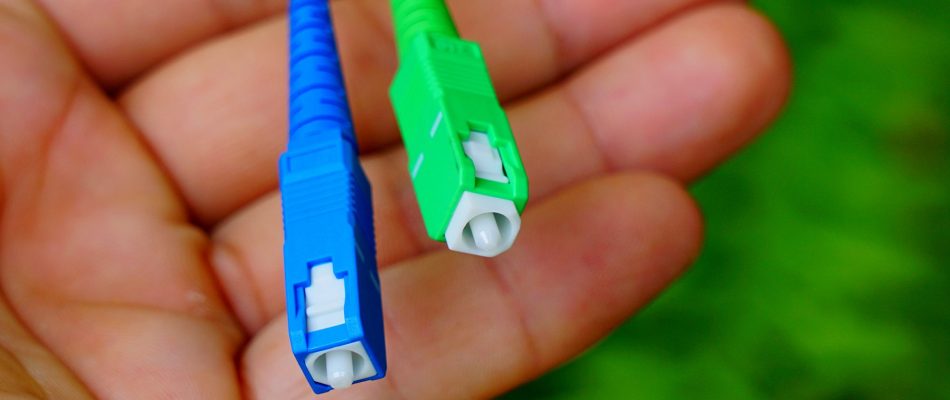Contrary to popular belief, fiber optic technology has been around for over half a century, and it has improved incrementally over the decades to provide us with modern fiber optic cables.
When it comes to IT systems and applications, these fiber optic cables are the preferred choice of professionals for all their networking needs.
Whether you run a small business or a large one, you should know why professionals prefer fiber optic cables to understand how they can benefit your business and its network systems.
Although, for complete transparency, it is always best to consult experts like Communications Solutions Inc. in Jacksonville, Florida, for a complete understanding of cabling solutions for your business.
Why Professionals Prefer Fiber Optic Cables
For general network cabling solutions, copper-based Ethernet cables are the typical choice, and its variants, like Cat5, Cat6, and Cat7, are widely used across the world. However, professionals favor fiber optics over copper-based Ethernet cables, and the following are the main reasons.
- Higher Speeds
Fiber optic cables offer considerably faster data transmission speeds than copper cables. It is not even a close competition because fiber optic cables transmit data through light pulses. As we all learned in middle school, nothing is faster than light.
Fiber optic cables have a glass core at the center, which is as thin as human hair. This core is designed to transmit light pulses capable of carrying high data volume up to 60 TB (terabits) per second – at nearly the speed of light.
In comparison, electricity-conducting copper cables are restricted by the speed of electrons traveling through the copper wiring. This limits their speeds to about 10 GB (gigabits) per second, which is respectable but nowhere near the speed of a top-grade fiber optic cable.
When professionals need to transmit large data volume in a short amount of time, there is nothing that comes close to the superiority offered by a fiber optic cable.
Moreover, professionals do not want to be limit their transmission speed and capacity. For this reason, they prefer fiber optic cables even if they do not regularly utilize their high-speed data transmission capabilities.
- Cover Greater Distances
Fiber optic cables are capable of sending signals over greater distances than copper cables. Some single-mode fiber optic cables (a specific fiber optic cable type) can transmit large volumes of data up to 25 miles quickly.
A copper cable may only transmit a fraction of that data up to about 100 meters at slower speeds.
- More Durable
A fiber optic cable is thin; hence, it has more space for cladding and protective coats. This makes them more durable and gives them the ability to withstand a pulling force of up to 200lbs. In comparison, copper cables are fragile and limited to just 25lbs.
Hence, fiber optics are preferred by professionals when constructing networks. Moreover, copper cables last as little as around five years and need to be replaced due to corrosion of the copper wiring, and their performance gets worse over time.
This problem does not occur with fiber optic cables, which can last up to 5 decades because they have fewer moving parts, sturdier construction, and are not susceptible to corrosion.
Professionals prefer longevity, and they want their cabling investment to provide peak performance for longer, which is why they prefer fiber optic cables.
- Reduced Signal Loss
Fiber optic cables also transmit data with less dwindling or signal loss than any copper-based Ethernet cable. The reduction in signal loss of fiber optics is incredible. While a copper cable may lose around 90% of its signal every 100 meters, a fiber optic cable will only lose about 3% over the same distance.
- More Reliable
Electromagnetic interference (EMI) interrupting data transmissions has been a problem with copper cables since their inception. Being electrical conductors, copper cables are susceptible to electrical surges, EMI emitted from nearby devices, lightning, ignition systems, cellular networks, and more.
Since fiber optic cables use light pulses instead of electricity, EMI does not affect their data transmission capabilities.
Fiber optics go even further and eliminate transmission problems caused by temperature changes, moisture, and severe weather – all things that affect data transmission in copper cables. Moreover, fiber optics are not a fire hazard like worn-out, corroded, old copper cables.
- More Secure
It is no secret that copper cables can be intercepted and tapped into, exposing the data traveling through electrical signals inside the cable. This vulnerability can have a huge negative impact on your business’s data security, slowing down your network significantly or even tearing it down completely.
On the other hand, fiber optic cables provide better security for your data and network because they do not carry electrical signals and are virtually impossible to intercept. While highly unlikely, when a fiber optic cable is damaged or compromised, you can easily detect the issue by checking the power transmission.
- Better Value for Money
There is no denying that copper cables are less expensive than fiber optic cables, which is why they seem like the more cost-effective option. However, fiber optics offer far more value for money than any copper-based Ethernet cable.
This is extremely apparent when you consider the maintenance costs, hidden costs, signal loss, interference issues, security risks, and early replacement costs of copper cables. Fiber optic cables are the best financial option for your business in terms of long-lasting cabling solutions.
Conclusion
These are the main reasons for professionals preferring fiber optic cables over other cabling solutions like copper-based Ethernet cables. Not only are fiber optics better in every aspect, but they are also eons ahead of any other available option.
If you require cabling solutions for your business in Jacksonville, Florida, we highly recommend Communications Solutions Inc. They are experts in cabling solutions, structured cabling, and network solutions.
If you want to learn more about why professionals prefer fiber optic cables or about Communications Solutions Inc., Contact Us Today.



